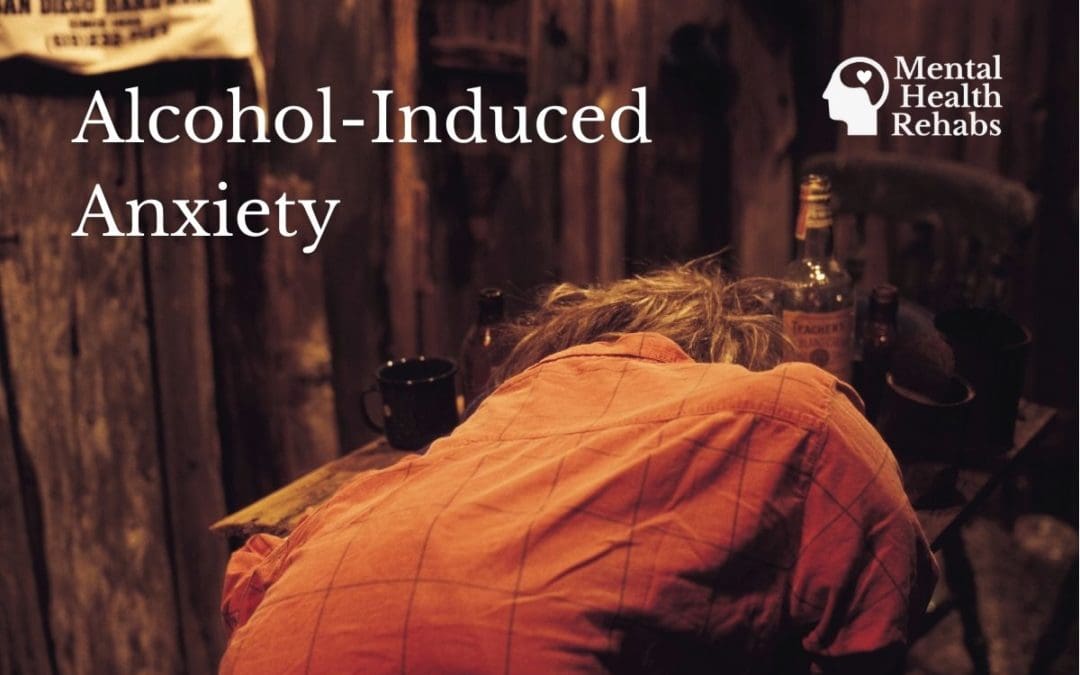Some tend to consume alcohol to settle anxieties on stressful days since it is a sedative and creates a feeling of relaxation. The use of alcohol may be an effective momentary solution, but it doesn’t address the underlying stressors. It’s possible that if you rely on alcohol to cope with your anxiety, you’ll get reliant on it to relax, which could lead to an addiction to alcohol.
Unfortunately, the more you drink, the more likely you’re to experience withdrawal symptoms, including aggravated anxiety. Or what’s known as alcohol-induced anxiety. Keep reading to learn about the seeming connection between alcohol and anxiety.
What is Anxiety?
Having a fear or worrying about the future is referred to as anxiety. It’s a natural response to stressors. Overthinking is another common symptom of anxiety. Anxiety can be beneficial in the short term since it keeps us awake and helps us perform better. But, when anxiety lasts too long or starts interfering with your everyday life, you’re likely dealing with an anxiety disorder. Anxiety can even cause physical symptoms for some people, including shortness of breath, vertigo, and headaches.
What’s Alcohol-Induced Anxiety?
The feeling of being uncomfortable and uneasy after drinking a large amount of alcohol is known as alcohol-induced anxiety, also known as “hangxiety.”
Dopamine production, the “feel-good” hormone, is increased by alcohol, which causes a euphoric rush throughout the brain and body, temporarily alleviating any anxiety sensations. Simultaneously, alcohol alters the brain’s serotonin levels and other neurotransmitters, exacerbating anxiety.
As the effects of alcohol wear off, you may feel more anxious, and symptoms can last for several hours or days after drinking. If you’re prone to generalized anxiety, you may experience panic attacks and other anxiety symptoms as your body tries to remove the alcohol in the system and return to its normal balance.
Now, for chronic alcohol abusers, the effects of alcohol in the body linger for much longer. In this case, individuals are likely to experience alcohol-induced anxiety almost every day.
Risks of Drinking When Someone Deals With Anxiety
Everyone has a distinct reaction to alcohol. Some people can drink in moderation; however, if you have a history of social anxiety and use alcohol as a strategy to cope with specific situations, you are at a high risk of alcohol dependence. So does alcohol relieve anxiety? If you already suffer from anxiety, alcohol withdrawal might aggravate your symptoms.
Alcohol withdrawal symptoms, aka a hangover, occur when you drink excessively. However, this is a common vicious cycle for people with anxiety: 1) You feel anxious about something or a situation. 2) You drink alcohol. 3) You feel calm and relaxed as the effects of alcohol kick in. 4) You stop drinking and start to feel anxious again. 5) You grab another drink to relieve your anxiety.
The following are some other signs of alcohol withdrawal:
- Trembling hands
- Sweating
- Fast heart rate
- Hallucinations
- Nausea
- Vomiting
- Seizures
Treatment for Alcohol-Induced Anxiety
Anxiety is not treated by alcohol. Stopping or reducing your alcohol use is the only sure approach to avoid anxiety produced by drinking. It all depends on whether your stress is caused by alcohol or if you have an underlying anxiety disorder for which you have been using alcohol to self-medicate.
Getting expert care for anxiety and Alcohol Use Disorder (AUD) can help you regain control of your life and avoid the detrimental effects of alcohol-induced anxiety.
An integrated approach is usually the best option when treating co-occurring illnesses like anxiety and alcoholism. Detox, inpatient treatment, outpatient treatment, medication, psychotherapy, participation in support groups, or a mix of these are all possible options for this type of treatment.
When to Seek Help
If your worries, fears, or anxiety attacks have grown to the point where they’re causing you considerable anguish or disrupting your routine, it’s critical to get professional help.
Your heart rate increases, sweating even when it is not hot, feeling ill, paranoia, and powerful feelings are all signs that you should seek medical attention. Your therapist will tailor a treatment plan to your specific needs to promote recovery.
In addition, if you or someone you know is using alcohol as self-medication, consider seeking help. Someone can be a high-functioning addict and not realize it. Speaking with an admission specialist about your drinking habits might help. Many rehab programs offer personalized treatment plans that address co-occurring disorders like alcohol and anxiety. So, don’t hesitate to reach out for help today.
Sources:
http://health.gov/dietaryguidelines/2015/guidelines/appendix-9
https://www.adaa.org/understanding-anxiety/social-anxiety-disorder/social-anxiety-and-alcohol-abuse

